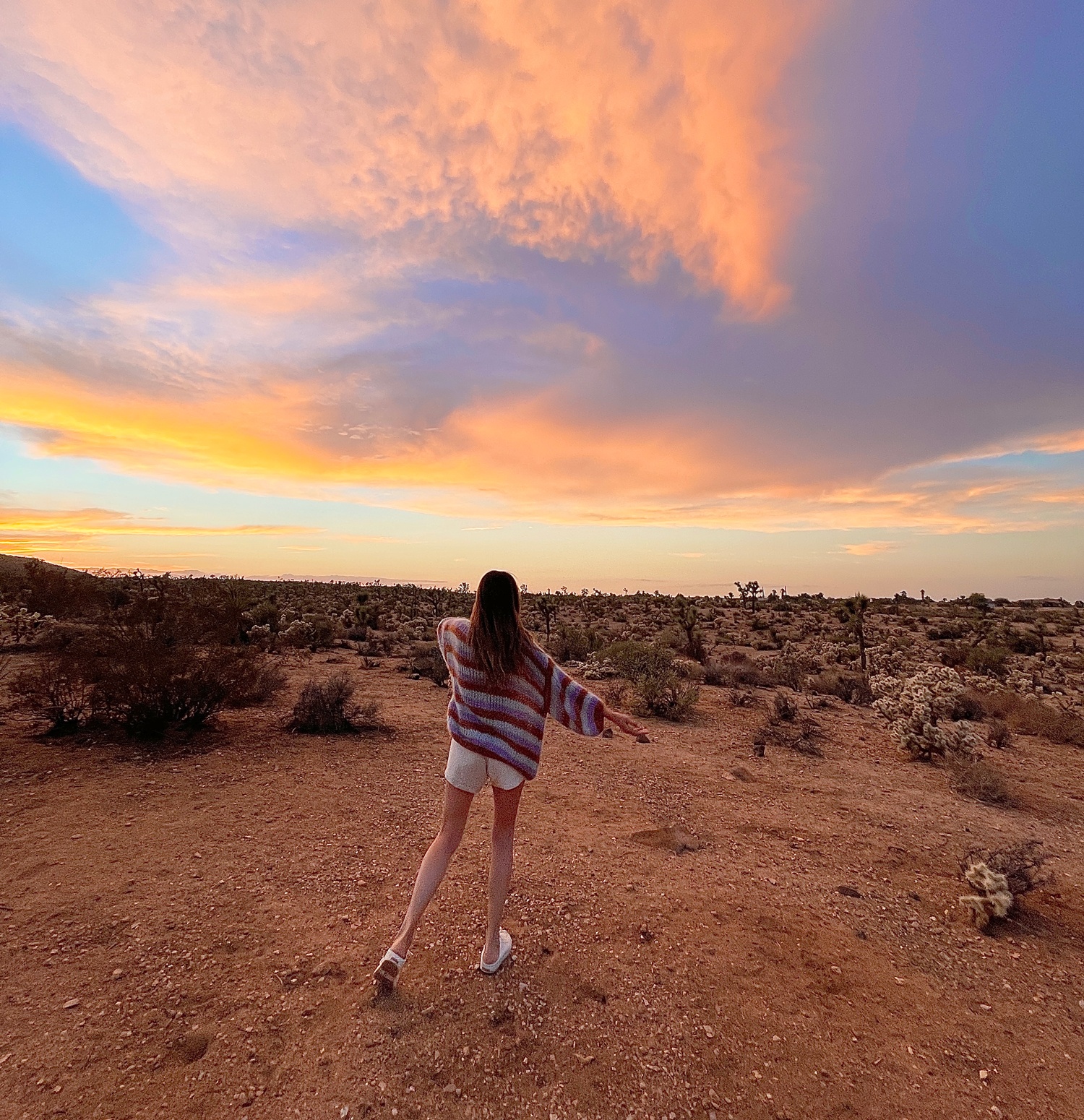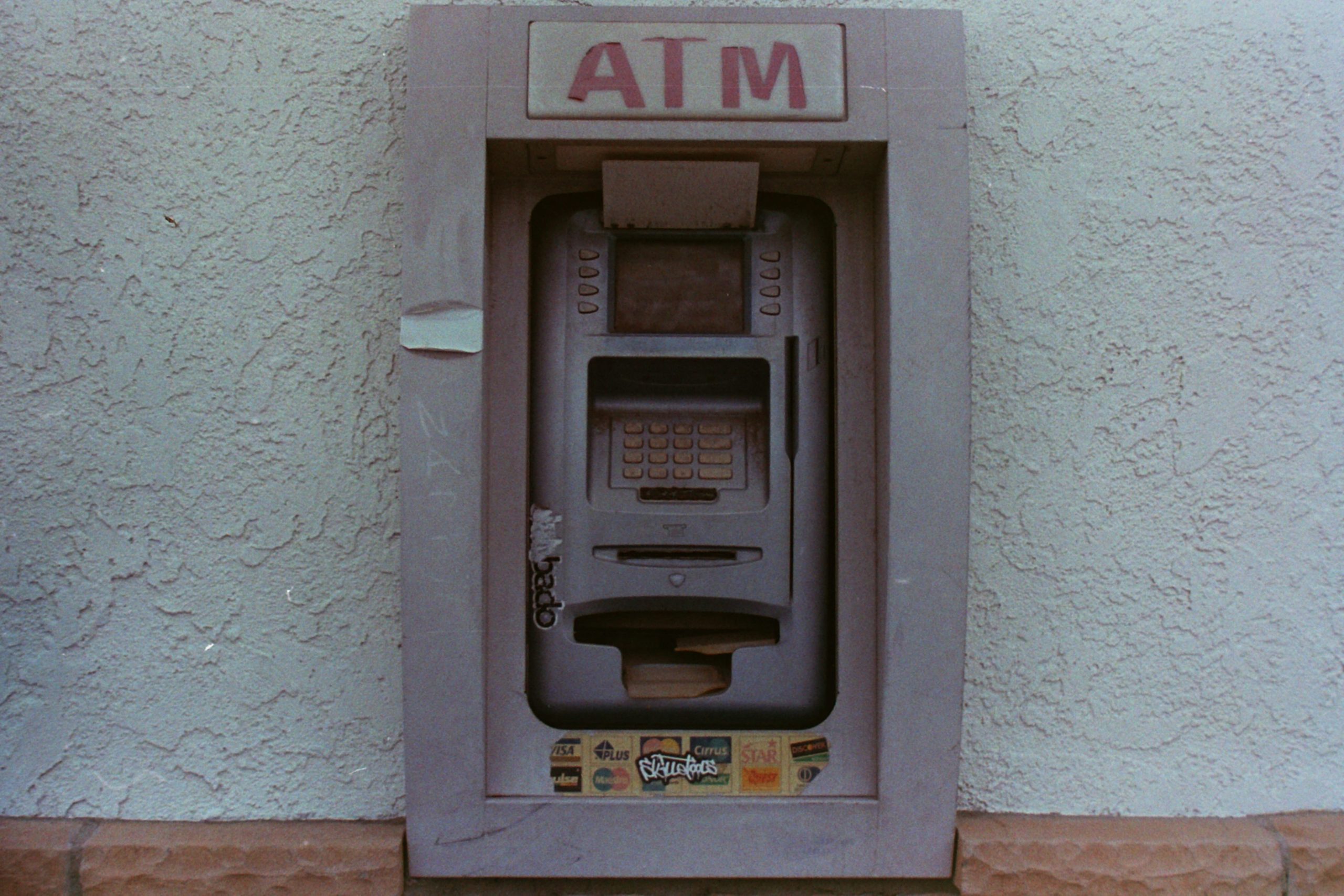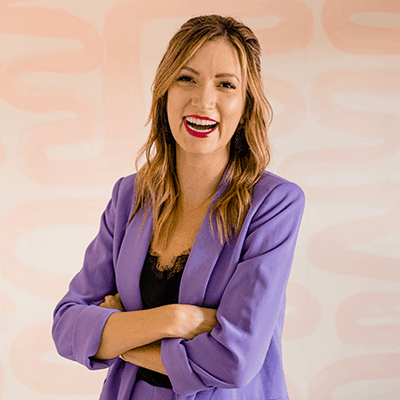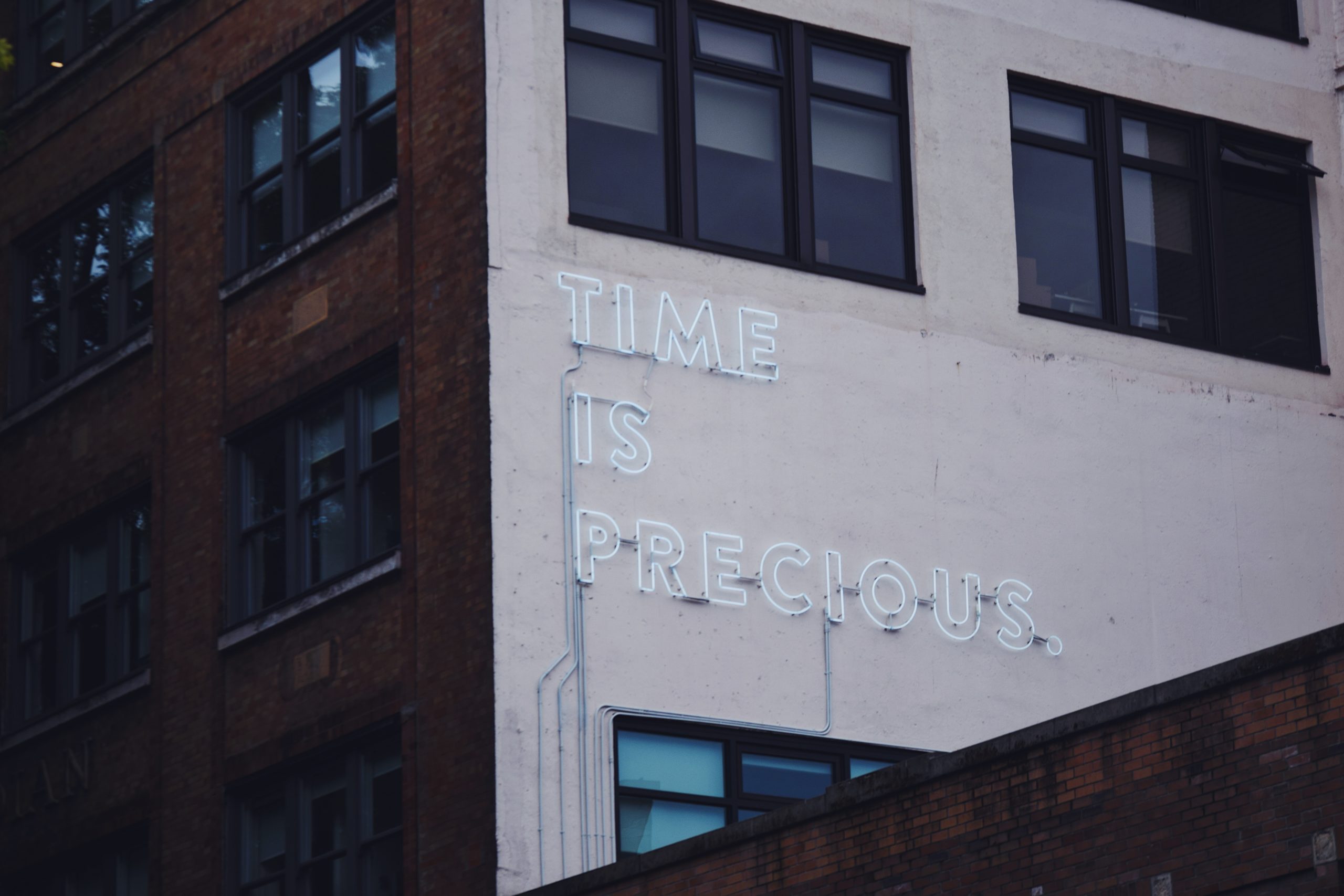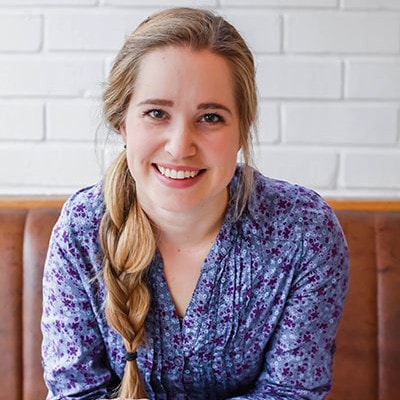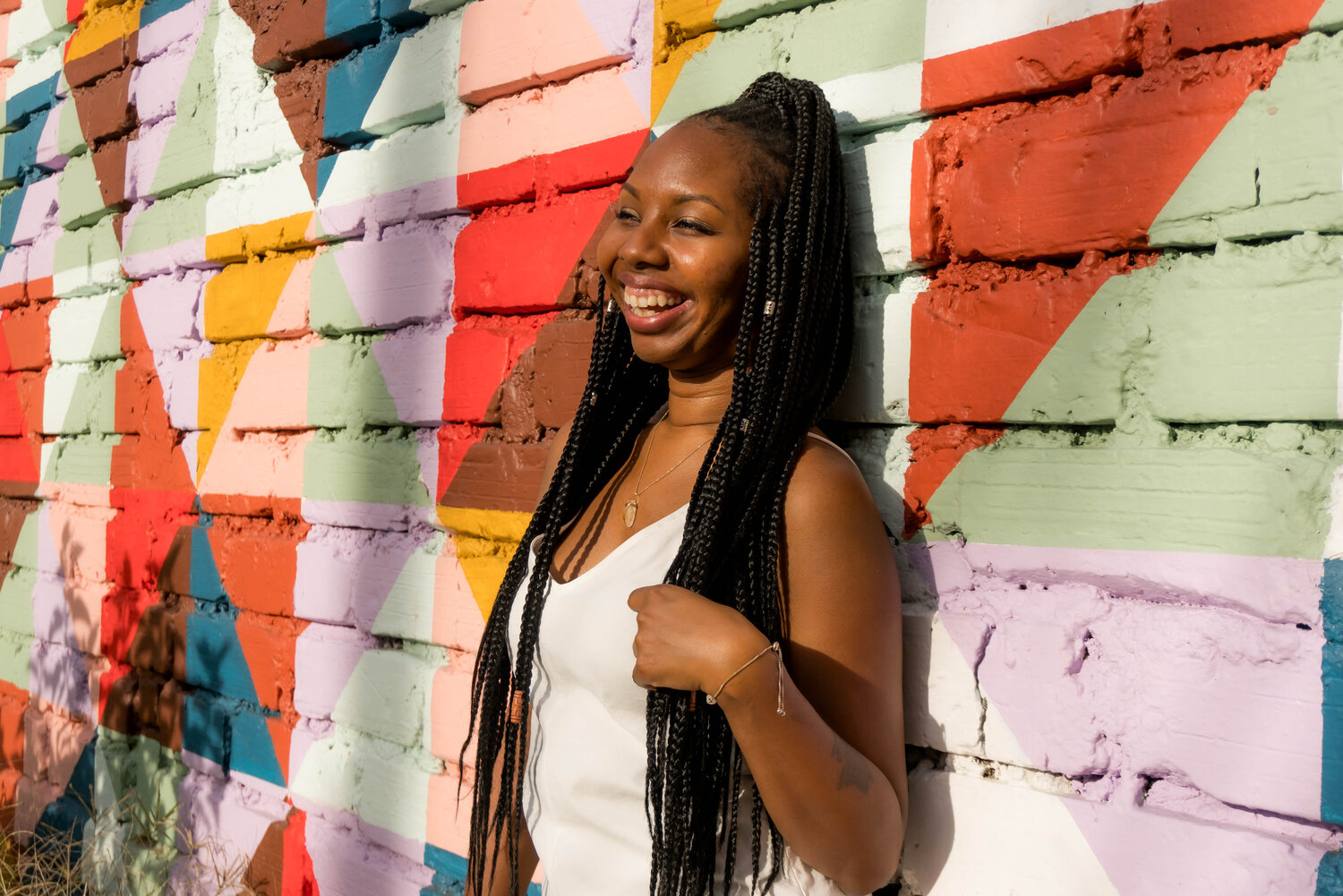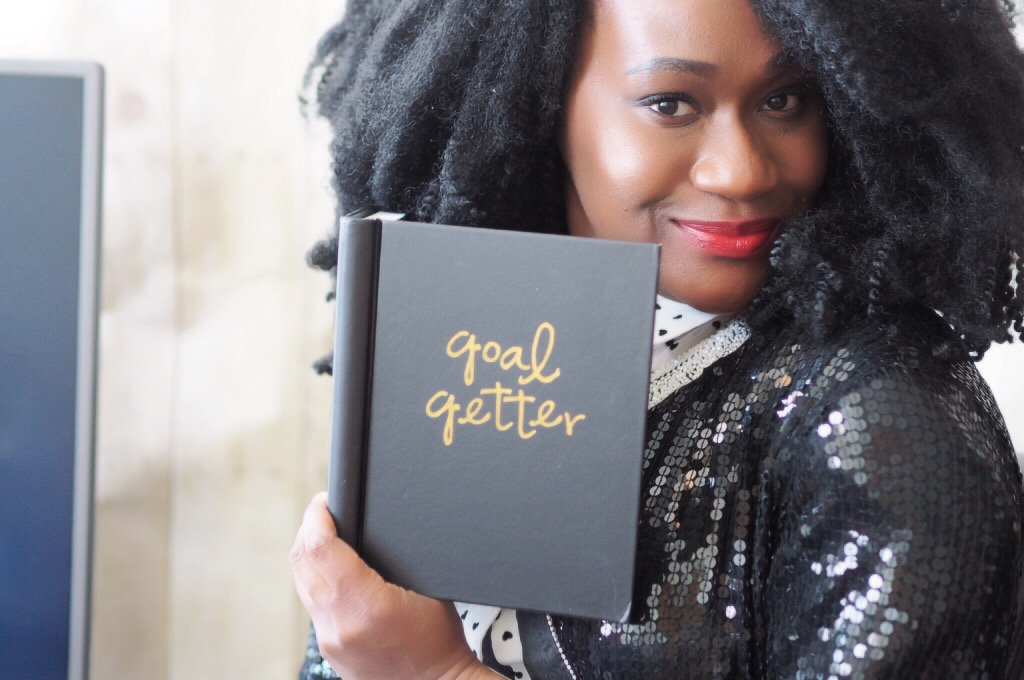Tune In to the Episode: Spotify | Stitcher | iTunes
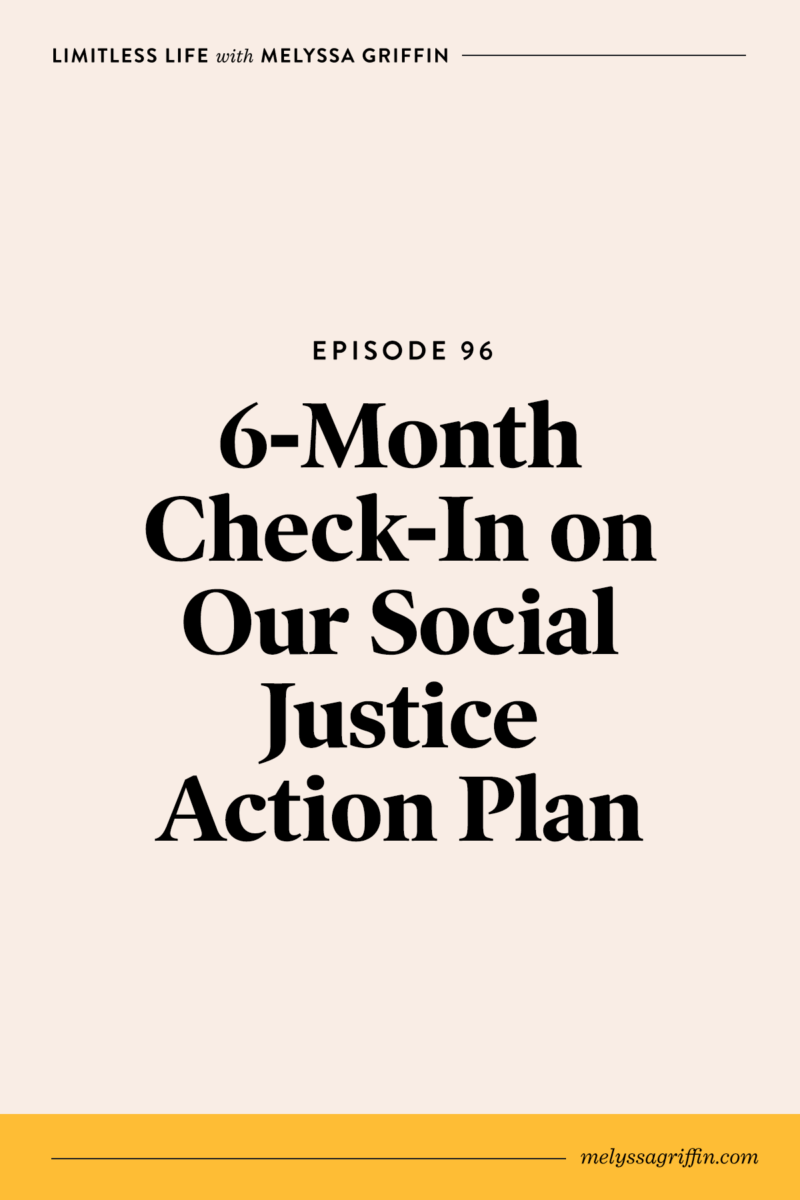
Let’s start with some major improvements…
1. We increased our spending to BIPOC-owned businesses by almost 700%.
In June 2020, our spending to BIPOC-owned businesses (not including monopolies like Facebook) was 3.2%. By the end of 2020, that number jumped to 19.77%. Our goal was to reach 15% by the end of 2020, so I’m feeling good that we were able to surpass it!
Why was our original number so low? Because we weren’t spending consciously. For example, we’d find software and products to use based on the first search results in Google, who had the highest ratings on Yelp, or based on recommendations from (often) white peers.
And because we now know that Black- and BIPOC-owned businesses face more hurdles on their path to success (such as having a harder time getting small business loans or investor funding, as well as facing systemic racism in life and business), this meant that we were often spending at white-owned businesses. This is why it’s so important for people with societally dominant identities (i.e. white people) to examine our unconscious biases so that we can make more socially conscious choices.
So, how did we increase our spending to BIPOC-owned businesses by nearly 700%?
Here are some of the things we did:
- We made a list of EVERYTHING we purchased in my company over the previous 6 months, then denoted if those companies were BIPOC-owned or not. If they weren’t (most weren’t), we began researching BIPOC-owned alternatives. This included everything from the company we use to deliver flowers to clients all the way to which breathwork certification training I chose.
- Some expenses were easier to replace, while others continue to be challenging. For example, it was easier to reallocate spending on things like restaurants (for retreat dinners), team, and smaller items (like books, gifts, etc). But it was much harder to reallocate spending on things like software or Facebook ads, as there just are not comparable, BIPOC-owned alternatives. There are a lot of reasons for this, namely the fact that BIPOC-owned startups have a harder time gaining funding. Someone on my team did tell me though that Calendly was started by Black entrepreneur, Tope Awotona, so obviously I stan Calendly now lol.
- We made an effort to hire more BIPOC for our team. I share more about this in the next section, but this was a major priority for us, too. As a white business owner, when I was looking to hire someone previously, I’d often get recommendations from other white peers, and the referrals they gave me were often white, too. This perpetuates a cycle where people who are getting these opportunities (especially amongst white business owners) all look the same, and therefore it excludes BIPOC from the process. I know the value of having a diverse array of perspectives on a team and in a society, yet I could see how I wasn’t fully living this in the lazy way we were hiring. Which brings me to my next point…
2. Our core team is 50% BIPOC and our coaching team is 54% BIPOC.
In June 2020, theses numbers were 33% and 0%, respectively. Yeah, 0%! I’m still embarrassed by that, if you couldn’t tell lol. I’ve got to hand it to my COO, Kat, who really shifted our hiring practices to discover and hire BIPOC talent, as well as to lead our team in a way that prioritized sincere inclusivity.
This sounds overly simple, but if you’re a white person who is struggling to hire BIPOC talent in your business (or not even thinking about it), then you’re probably just not making an effort, like we were. If you’re a white business owner, then it can be easy to go with the first referral your white friend makes or to hire the white person who’s well known in the white microcosm of your industry. There are tons of talented BIPOC out there who you simply may not know of because your bubble is so small. I say all of this from personal experience, if you couldn’t tell. 😉 Once we admitted that we had a problem and decided to make a change, our hiring process became a lot more intentional.
And something that I think is important to add when talking about “diversity” is that you miss so much when your entire team looks like you. Hiring people from diverse backgrounds and races has added a layer of depth and perspective to our team that we wouldn’t have had otherwise. How can you truly innovate when everyone comes from a similar perspective? How can you create inclusivity for BIPOC in your community when everyone on your team is white?
3. Our entire team did a 12-week Social Justice course, led by Dr. Tee Williams.
We learned a lot about different frameworks for dismantling oppressive systems, such as Anti-Racism, Diversity and Inclusion, and Liberation (which are all different lenses from which your activism can look through). Dr. Tee taught through the lens of the Liberation Framework, which was the one I most resonated with. His course taught us how to approach our activism with the goal of liberation in mind (a.k.a. Creating the thing you want, liberation vs. battling against the thing you don’t want, oppression), and it also placed a focus on intersectionality (i.e. we covered all marginalized identities, like disability status, gender, and sexual orientation, in addition to race). I enjoyed going through this with our whole team, as it sparked some interesting conversations, both in and out of the classroom.
After that course ended, myself and my COO, Kat, joined a 6-month program, led by Lynne Maureen Hurdle, to learn about racism and white supremacy in the United States. This has led to some terrific (and disturbing) conversations and has truly shifted the way that I approach activism work in my life. We’re both continuing her mastermind for another 6 months to anchor this work into our lives even more.
And beyond any of these courses, social justice and liberation continue to be part of the conversations we have as a team and company. I know I personally still have a lot to learn, so I’m grateful that we’re continuing to normalize these kinds of conversations in our company culture.
4. Our leadership team created their own personal Social Justice Action Plans and presented them to the rest of our team.
This one is pretty self explanatory, but I asked each member of our leadership team (4 people, at the time) to create their own Social Justice Plans and present them to our core team, detailing how they were going to learn more and make changes in their own lives. I think this also helped to spark some more personal conversations between all of us, as well as create accountability as individuals.
5. We continue to make a significant effort to highlight BIPOC voices on my podcast and as speakers at my retreats.
This was something we were prioritizing prior to creating our Action Plan last year, but it continues to be something we look for in the guests we select for my podcast and the speakers we hire for retreats. My estimate is that collectively, at least 50% of guests and speakers are BIPOC, which is the minimum we’re shooting for.
6. I’ve turned down several invitations, and recommended BIPOC leaders instead.
I made a commitment that I will not speak at an event that doesn’t make a significant effort to highlight BIPOC voices. I’ve been invited to things like speaking at summits, being interviewed for a book, and being involved in a mastermind day with some big industry leaders.
Before, I may have said yes because I’d feel excited to be included, but now my tendency is to always ask who else is going to be part of it. Unless the host makes an effort to highlight BIPOC voices (generally by 50% or more), then I decline the invitation. Instead, I send them a list of BIPOC leaders who I think deserve an invitation instead of me. (Note: I am also careful to do this because I don’t want to connect a BIPOC person with an event where they will feel unsafe. I just use my best judgment in these cases.)
The responses to this have been interesting! Everything from radio silence to slight defensiveness to making a conscious effort to improve and being grateful for the suggestion. I’ll also say that now that this is something I’m very conscious of, whenever I see an event that’s 95% white people, it really bothers me. It’s like I can’t unsee how white-centric certain events are anymore.
I also say this knowing that I have certainly been guilty of hosting and participating in events in the past that did not make an effort to be inclusive. I generally know that the people hosting these events aren’t trying to only highlight white voices, they just invite the first people that they think of, who are often white if that is who they surround themselves. This is why I think it’s so important to uncover our unconscious biases to see where we’re falling short. It’s something I continue to work on, knowing that I still have a lot to learn, too.
7. I got more involved with Hustle 2.0 and New Earth.
Beyond making changes in my business, I wanted to take some intentional actions in my personal life toward creating a more liberated society, so I have been putting in more effort with two organizations that have really spoken to me.
Hustle 2.0 is an organization that provides transformational coaching to incarcerated people. They help individuals to heal from the trauma and abuse they experienced in their lives (which often led to the violence they perpetuated) as well as to create ideas for legal businesses (instead of getting caught up in illegal businesses, like selling drugs).
I’ve volunteered at some of their events (pre-Covid) at Pelican Bay State Prison and they are truly life-changing. I could go on for days about the prison industrial complex and how it fuses many branches of systemic racism together (socio-economic, criminal justice, education, trauma, etc) into ONE system that is essentially Slavery 2.0. The incarcerated men I’ve met through Hustle 2.0 have certainly made some bad decisions in their lives (again, often fueled by systemic racism and the highest levels of trauma imaginable), but they’re ready to turn their lives around. This program helps them do that.
I’m really grateful to be getting more involved with Hustle 2.0, and have done things like host a socially-distanced event for the families of incarcerated men at my house, as well as advise Hustle 2.0 on strategies to grow their organization. My company also donated a new website to H2.0 last year, designed by our in-house designer at the time, Jillian, which you can visit right here! It’s so purdy and explains a lot more of how Hustle 2.0 is changing things within the prison system.
I’m also in the early stages of designing an entrepreneurship program with New Earth in Culver City to support young/teen moms who are interested in starting businesses. I found New Earth because I was searching for organizations that work with youth affected by incarceration (basically, teens who are on the path to lengthy prison sentences, but are at the age where intervention could change the course of their lives). But when I reached out to New Earth, they told me they were developing a new program to support young, entrepreneurial moms, so I jumped at the chance to help them coach these women. This is something that’s still in the works, but I’ll hopefully have more updates by my next update. 🙂
8. Remaining committed to our beliefs within our community.
This means that we have added Diversity, Equity, and Inclusion statements to our student/client communities, in our company core values, and in contracts to clients. But beyond simply adding these things, our work is really in upholding these beliefs. Thankfully, our community tends to lean very socially justice minded, but we have done things like removing people from our community and even releasing a client if their beliefs and behaviors perpetuate oppression and they are unwilling to change their behavior.
So, those were some of the biggest improvements we’ve made over the last 6 months. Now let’s talk about…
Where do we go from here?
I’m proud of what we’ve been able to do so far, but I know that our work is only just beginning. So, what’s on the horizon for me and my company over the next 6 months?
- Increasing our spending to BIPOC businesses to 30%. This was originally our goal to hit by the end of 2021, but I actually think we can do it by June!
- Make more of an effort to create intersectional inclusivity. Much of our focus has been on race and racism, but there are obviously many other identities that face oppression, such as trans people, LGBT people, and people with disabilities. I want to make more of a conscious effort to hire and share the work of leaders with these identities, too. And of course, to learn how I can create inclusive spaces where people from these identities can feel safe and seen.
- I will continue to personally learn about social justice and how to lead my life and company from a socially conscious place. I’m currently doing this in Lynne Maureen Hurdle’s program, as well as other places of learning, like documentaries, books, and conversations with friends. But as shared in the previous point, I have been focusing largely on race and now want to expand my focus to more identities and the way they intersect.
Thank you for reading and following along! I know it may seem like a lot of WORK to create a socially conscious company (and in some ways, it is!), but if you hold dominant identities, then avoiding the work is part of your privilege. All I have to do is think about the work that BIPOC and people from marginalized identities have had to do their whole lives, that I’ve been able to bypass because of my cisgender, heterosexual whiteness, and it reminds me why this work is necessary. Striving toward liberation for all people (even in my own small way) keeps me motivated to continue.
If you posted a black square last year on Instagram, but are noticing that your social justice efforts have waned since, then I highly recommend creating your own time-sensitive action plan as a starting point, too. I always find that having a goal in mind and a plan in place helps me to stay on track and accountable, rather than hoping I make changes over time. You’re welcome to take anything from this update or from our original Anti-Racism Action Plan and use it for your plan, too.
Sending you all boundless love as we collectively strive to create liberation, little by little.
With Love,
Melyssa

